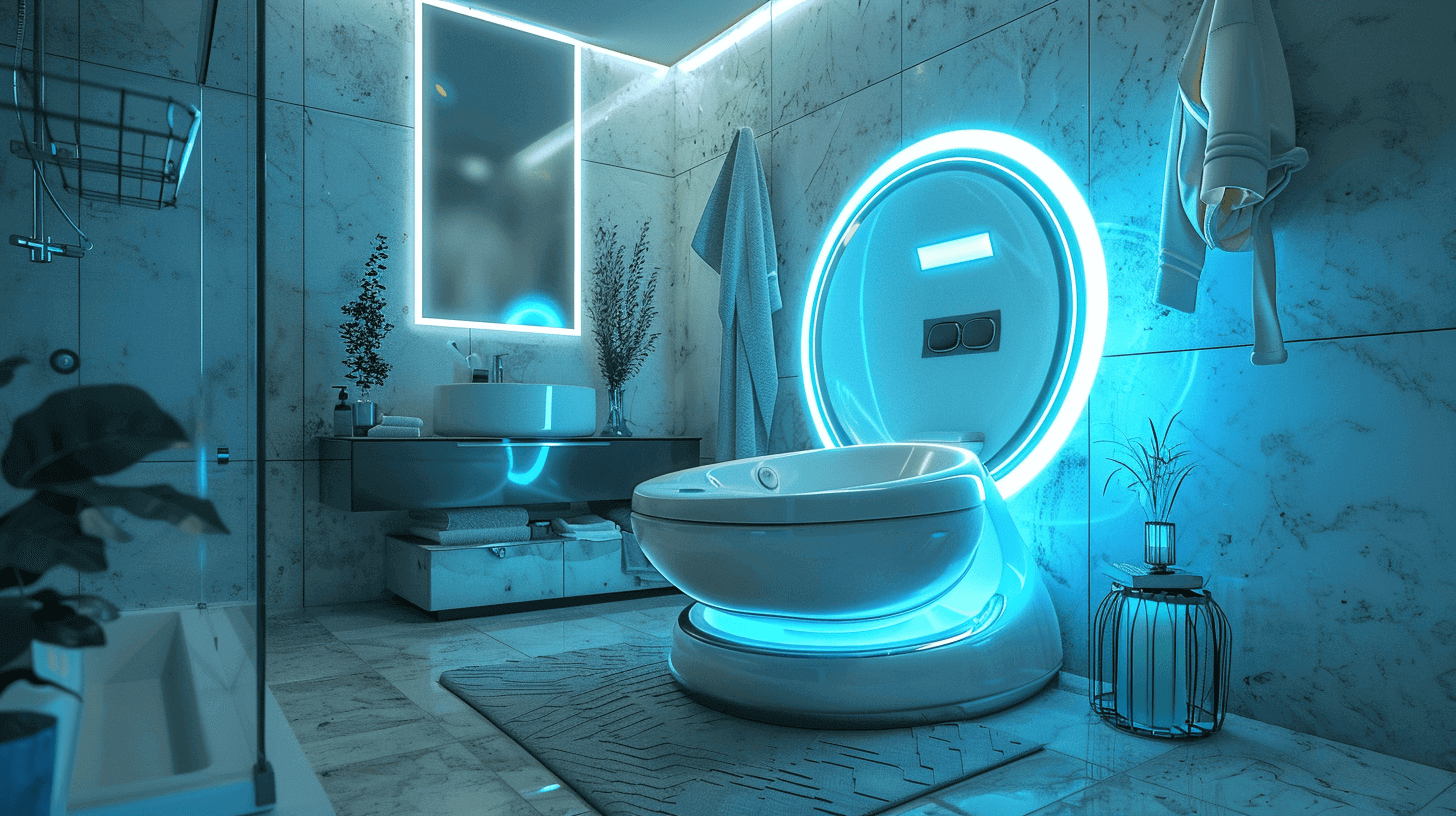There’s no reason why innovation has to be flushed…
The humble toilet—often overlooked in the grand scheme of technological advancements and design innovations. Yet, a growing number of designers, environmental engineers and sanitation experts argue that toilets are due for a significant upgrade. In fact, they believe it’s time for a paradigm shift in how we approach sewage and waste management.
Flushing toilets, while convenient, are incredibly wasteful. According to the Environmental Protection Agency (EPA), they account for nearly a third of indoor water use in US homes. This excessive water consumption becomes even more problematic in regions affected by climate change-induced droughts and flooding, leading to overwhelmed sewer systems and compromised sanitation.
Robo toilets of the future!
However, the need for innovation extends beyond water conservation. Rethinking waste management presents an opportunity to harness the potential of our excrement as a valuable resource. Instead of simply disposing of waste, it can be converted into renewable energy, heat and fertilizer.
One such innovative approach is the dry toilet, known as the “Huussi” in Finland. This system separates urine from solid waste and utilizes ventilation to prevent odors. Users add peat or sawdust to the waste, promoting decomposition. The resulting material, rich in nitrogen and phosphorus, serves as natural fertilizer, offering a sustainable alternative to synthetic fertilizers.
In the United States, dry compost toilets have long been used in rural areas without access to traditional sewage systems. These systems, while effective, face regulatory and logistical challenges in urban environments. Nonetheless, environmental engineers and advocates are working to promote their adoption, particularly in drought-prone regions.
“Huussi…” No not the word our parents used to say…
Another promising innovation is the waterless portable toilet developed by Change:WATER Labs, aptly named the “iThrone.” This technology employs an evaporative material to reduce waste volume by up to 97% within a single day. By shrinking waste at the point of production, the iThrone minimizes hygiene risks and conserves water resources. Moreover, future iterations may incorporate waste-to-energy conversion and water recycling capabilities, further enhancing sustainability.
While these innovations offer promising solutions, widespread adoption faces several obstacles. Regulatory barriers, public perception, and infrastructure limitations pose significant challenges to implementation. Additionally, cultural norms and preferences may influence acceptance and usage rates.
Despite these challenges, the momentum for toilet revolution continues to grow. Governments, organizations, and individuals alike recognize the urgent need for sustainable sanitation solutions. By reimagining the toilet as more than just a disposal mechanism, we can transform waste into a valuable resource and pave the way for a cleaner, more sustainable future.
“iPhone?” Nope… We’re talking about the iThrone!
In cities with established sewer systems, efforts to modernize wastewater treatment infrastructure are underway. Projects such as RecoLab in Helsingborg, Sweden, exemplify the shift towards circular wastewater management. By separating and recycling water and organic matter, RecoLab reduces pollution and promotes resource recovery.
Similarly, initiatives in California aim to incorporate onsite wastewater recycling systems in new developments to mitigate water scarcity. Epic Cleantec, a local startup, specializes in graywater reuse systems, offering a sustainable alternative to traditional sewage systems.
While these advancements may seem radical, they represent crucial steps towards a more resilient and resource-efficient future. By embracing innovation and challenging conventional practices, we can address pressing environmental and public health challenges associated with sanitation.
Let’s be real here. The time has come to revolutionize the toilet. By leveraging technology, innovation, and collaboration, we can reimagine waste management and create a more sustainable world for future generations.
Do have any fun ideas for the toilet revolution? We’d love to hear from ya! Shoot us a note! Or drop a comment on this article or any others that flush your senses.
